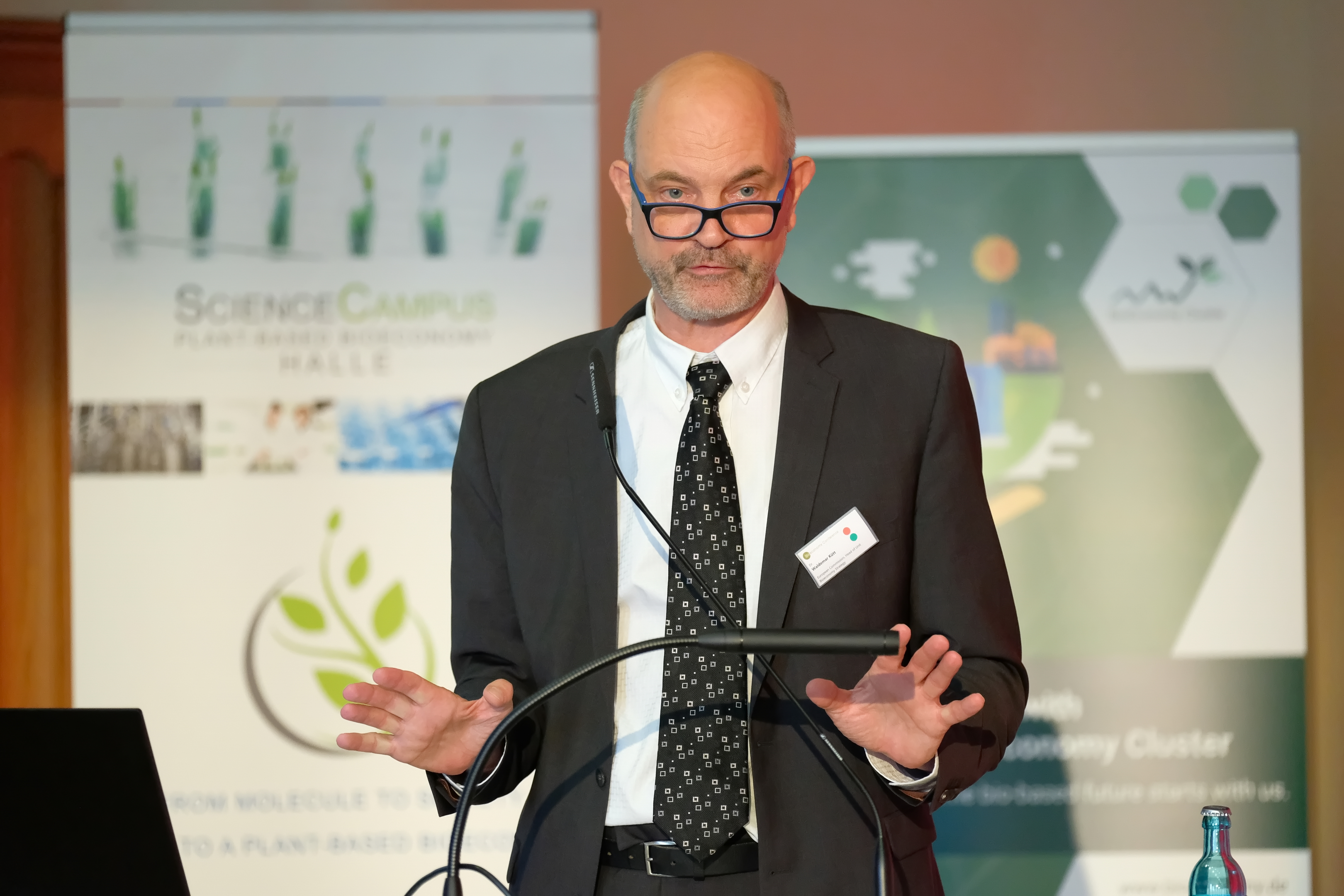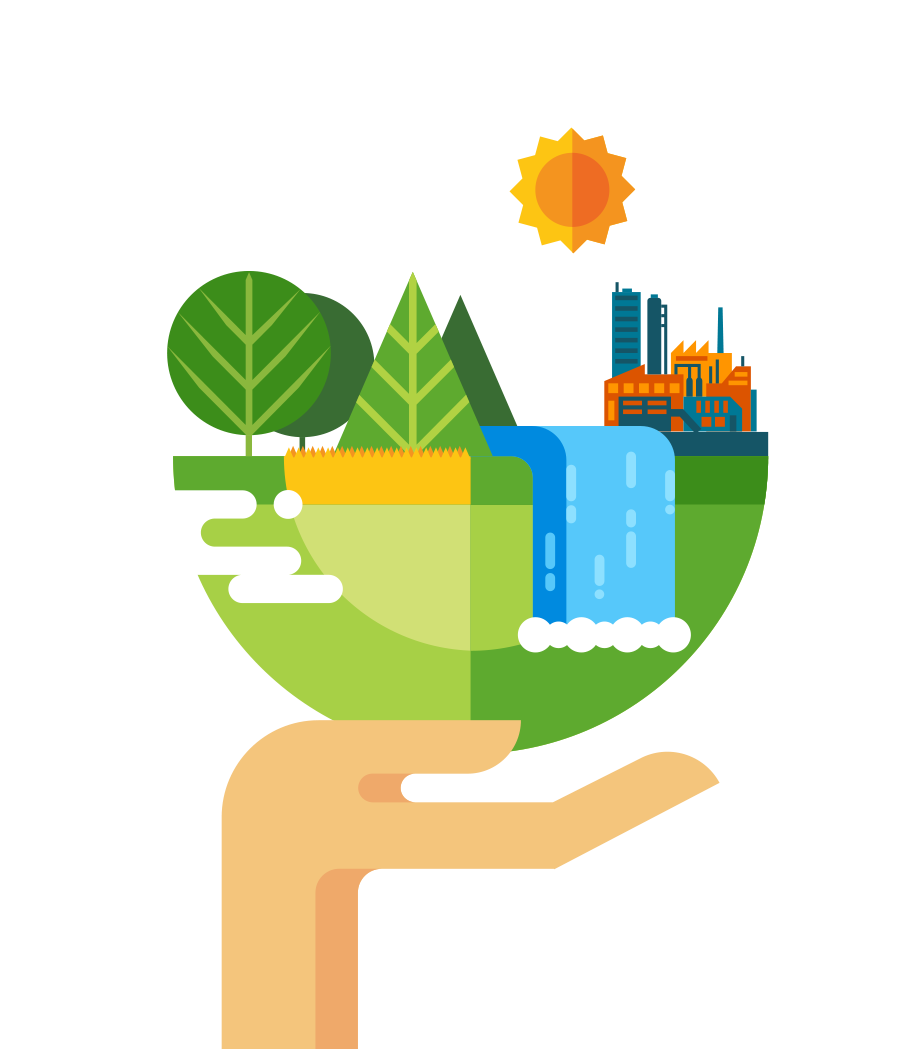Biobased economy entices 200 participants to Halle
The 7th International Bioeconomy Conference, organized by the ScienceCampus Halle – Plant-Based Bioeconomy (WCH) and the BioEconomy Cluster, was held in Halle an der Saale on June 6 and 7. Many renowned speakers presented their knowledge on biobased economic activities at the National Academy of Sciences Leopoldina. With over 200 participants, the booked-out conference showed that bioeconomic products and solutions can already be found everywhere in daily life, for example in T-shirts, cars, cosmetics, adhesives, paints and food supplements.
The 7th International Bioeconomy Conference kicked off at the same time as Alexander Gerst’s rocket launch. In his opening speech, Dr. Waldemar Kütt, head of the unit “Bioeconomy Strategy” at the European Commission, outlined Europe’s strategy for a sustainable bioeconomy and how it is grappling with ecological, social and economic aspects. His promotion of biobased economic activities all over the European Union was a central theme throughout the conference.
Arriving from Brussels especially to attend one of the most important bioeconomy events in Germany, Dr. Kütt explained that the bioeconomy already provides over 18.5 million jobs in Europe. “The bioeconomy is designed to help solve the challenges facing society. To this end, the EU has launched its own strategy, spending more than €3.8 billion on research and development projects for biobased solutions (2014 – 2020) and has proposed investing €10 billion during the next financial period (2020 – 2027)”.
Dr. Jürgen Ude, State Secretary for Saxony-Anhalt’s Ministry of Economic Affairs, Science and Digitalization along with many other speakers, including those from this year’s conference partner region Scandinavia, were very enthusiastic about the event and about the Leopoldina.
A great response from the business community
Professor Klaus Pillen from the ScienceCampus Halle and Professor Matthias Zscheile, cluster manager of the BioEconomy Network, were very pleased with the great response, especially from industry. Twice as many companies registered for this year’s conference as last year. “We were able to provide a great incentive for bioeconomy stakeholders by offering the Leopoldina as a venue, Scandinavia as a partner region and pioneer in the field of bioeconomics, and the five exciting thematic areas,” says Professor Pillen, adding, “The networking dinner on the first day of the conference by far exceeded our expectations.” After the presentations, 100 participants took advantage of the opportunity to expand their knowledge of conference topics and to network in a pleasant atmosphere. “Our concept of bringing scientists together with entrepreneurs and creating synergies has worked,” concludes Professor Zscheile, who adds: “In the course of the evening, new project ideas emerged and promising collaborations were initiated, which is also the main task of the Bioeconomy Cluster.”
On both days, 38 speakers and seven session leaders from all over Europe led participants through the program on (1) socio-economic research in the bioeconomy, (2) challenges and opportunities for a wood-based bioeconomy, (3) plant productivity for a growing bioeconomy, (4) the road to successful biotech products and (5) research highlights of the BMBF, ensuring a lively exchange with and among the participants.
Save the date: 8th International Bioeconomy Conference in 2019
The International Bioeconomy Conference, founded in 2012 by the ScienceCampus Halle, is one of the most important bioeconomy events in Germany and annually brings together renowned international representatives from science and industry for a joint exchange on the latest research results, innovations and current developments on the bioeconomy markets. This will again be the case in 2019, when the conference takes place for the 8th time in Halle (Saale) on May 13 and 14.


 Deutsch
Deutsch

